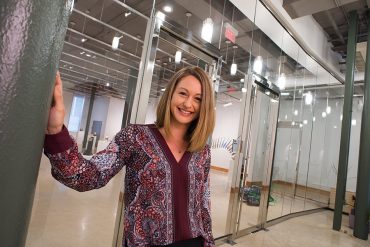By Marla Brannan
HQ 59 | AUTUMN 2006
It takes heart to touch lives and Hospice of Huntington’s driving force, from the CEO to its many volunteers, is heart. In fact, Hospice of Huntington’s core values actually spell out the word HEART: Honesty, Empathy, Accountability, Respect and Trust.
Perhaps you have always thought of hospice as the nurses who hold the hands of the elderly moments before dying, or the phrase “they’ve called in hospice” as the final death knell of a loved one. Not so. According to Hospice President and CEO Charlene Farrell, “If you have a terminal illness there’s a lot of living left and hospice is about living life to the fullest until the moment of your death. The one thing we hear most often from the families we’ve worked with is ‘I wish we’d come to you sooner.’”

So if Hospice is not just for the aged in the last days of their lives, who is it for and what does it do? Hospice of Huntington’s goal is to be the region’s first choice for end of life care as evidenced by its motto: “We Light the Way Home.” Those who qualify for hospice care must live in Cabell, Wayne or Lincoln Counties in West Virginia or Lawrence County, Ohio. In addition, all curative measures must be exhausted or a six-months-to-live diagnosis has been given. Others who qualify include patients who require a caregiver because they are unable to manage daily care unassisted. Services offered include nursing, attending physician services, medication relating to terminal illness, home health aide services, medical supplies, physical, occupational and speech therapies, medical Social Services, spiritual and dietary counseling, trained volunteers, bereavement counseling and classes, a summer camp for children affected by loss, and end of life or respite care at Hospice House.

In the words of Shelly Betz, development director at Hospice of Huntington, “It’s an interdisciplinary approach. In addition to the quality medical care that the patients receive, the support services that extend to include the families can be just as important. People don’t take into consideration that someone with a terminal illness affects the entire family. Everyone from the physician to the nurses to the nursing assistants, to the counselors to the volunteers who offer relief all play important roles.”
Charlene Farrell agrees. “We travel this road with people to the very end – whatever they need we’re there to walk with them through this difficult journey. It makes it easier for people knowing they won’t be alone and whatever comes up we’ll help them handle it.”
To read the rest of “Hospice of Huntington,” please visit the Back Issues page of our website to purchase this issue of the Huntington Quarterly.





